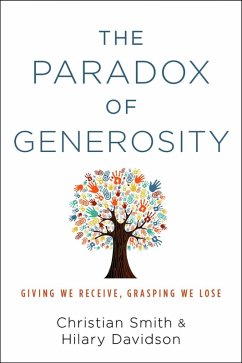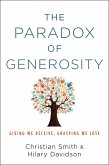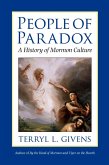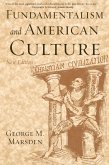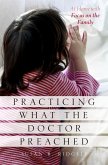Determining why, when, and to whom people feel compelled to be generous affords invaluable insight into positive and problematic ways of life. Organ donation, volunteering, and the funding of charities can all be illuminated by sociological and psychological perspectives on how American adults conceive of and demonstrate generosity. Focusing not only on financial giving but on the many diverse forms generosity can take, Christian Smith and Hilary Davidson show the deep impact-usually good, sometimes destructive-that giving has on individuals.
The Paradox of Generosity is the first study to make use of the cutting-edge empirical data collected in Smith's groundbreaking, multidisciplinary, five-year Science of Generosity Initiative. It draws on an extensive survey of 2,000 Americans, more than sixty in-depth interviews with individuals across twelve states, and analysis of over 1,000 photographs and other visual materials. This wealth of evidence reveals a consistent link between demonstrating generosity and leading a better life: more generous people are happier, suffer fewer illnesses and injuries, live with a greater sense of purpose, and experience less depression. Smith and Davidson also show, however, that to achieve a better life a person must practice generosity regularly-random acts of kindness are not enough. Offering a wide range of vividly illustrative case studies, this volume will be a crucial resource for anyone seeking to understand the true impact and meaning of generosity.
Dieser Download kann aus rechtlichen Gründen nur mit Rechnungsadresse in A, B, BG, CY, CZ, D, DK, EW, E, FIN, F, GR, HR, H, IRL, I, LT, L, LR, M, NL, PL, P, R, S, SLO, SK ausgeliefert werden.

